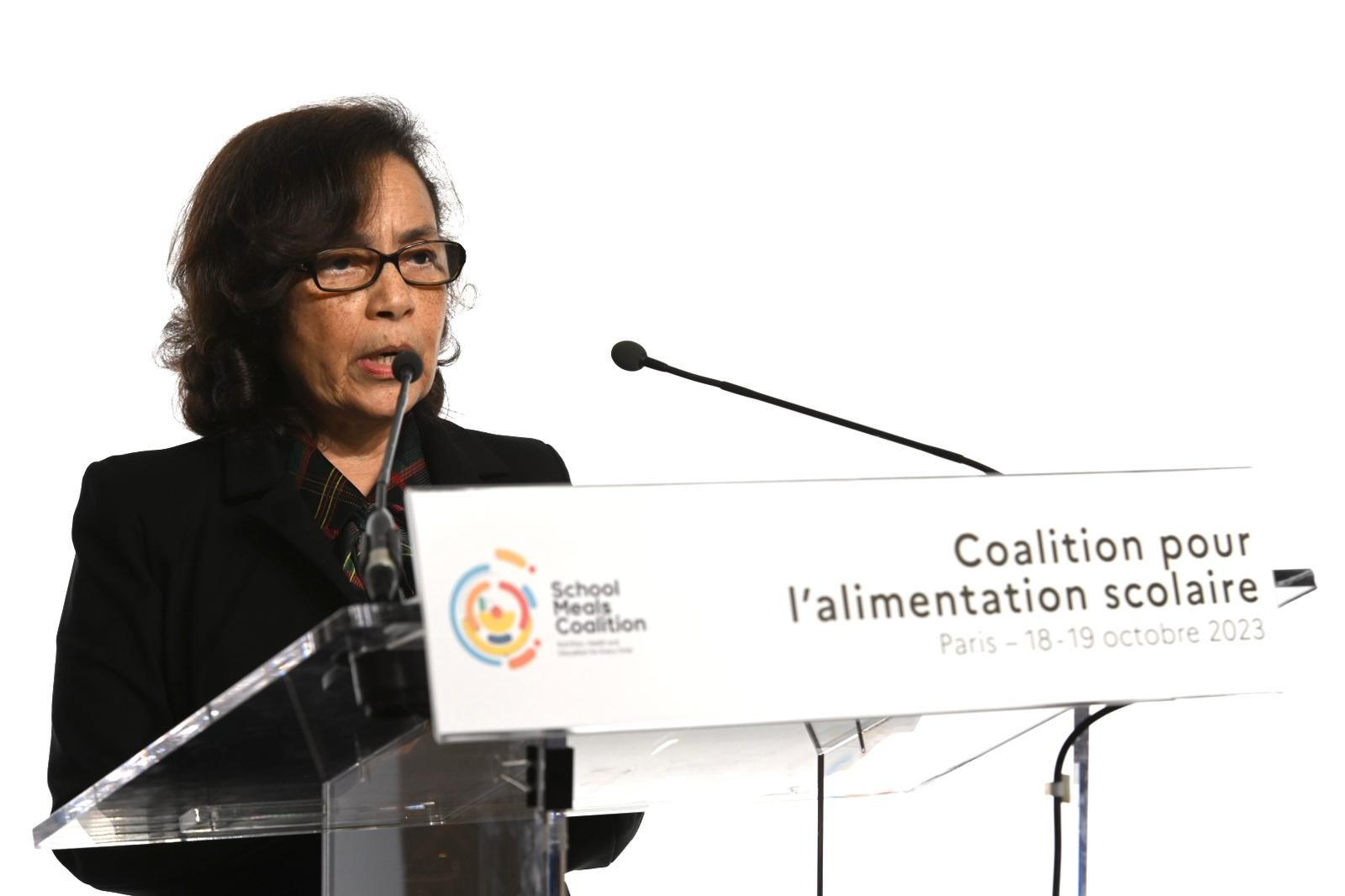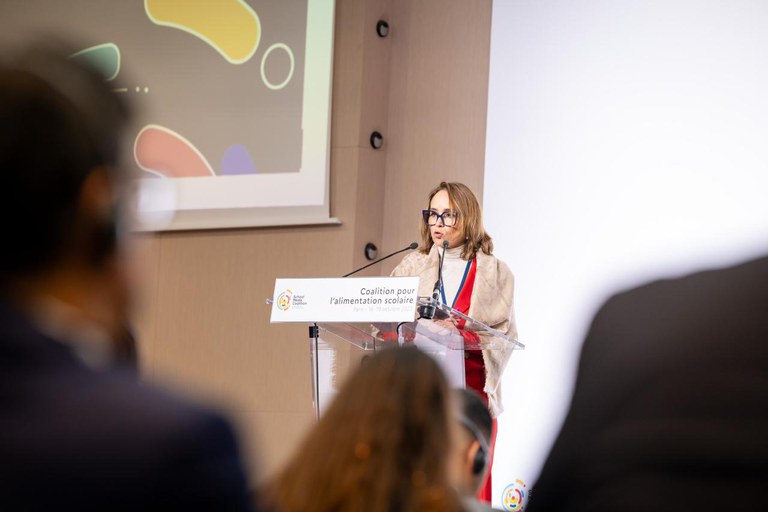
Brazil was announced as the third country to chair the Global School Meals Coalition along with France and Finland. The news was shared at the opening of the Coalition’s first global meeting, which took place in Paris on October 18 and 19. Daniel Balaban, Director of the World Food Programme’s (WFP) Centre of Excellence Against Hunger in Brazil, also attended the event, which brought together more than 80 countries to reinforce their commitment to strengthening school meal programmes.
In her speech, Maria Laura da Rocha, secretary general of the Ministry of Foreign Affairs, said that, as co-chair of the School Meals Coalition, Brazil will intensify its international cooperation efforts to promote access to healthy and nutritious meals in schools in all countries. Brazil also announced that it will host the next global meeting of the Coalition, scheduled for 2025.
“Eradicating hunger in the world is a political problem that requires political solutions and we need to work faster and faster to achieve the goal of zero hunger,” said Maria Laura da Rocha. “In this sense, providing adequate school meals is one of the most important long-term structural strategies to address food and nutrition insecurity,” she added.
In 2021, in response to the devastating impact of the COVID-19 pandemic on school children, governments established and now lead the Global School Meals Coalition. The WFP is a supporter and plays the role of the group’s secretariat. The Coalition is an initiative of governments and partner institutions to drive actions that can urgently re-establish, improve and scale up food and education systems, support recovery from the pandemic and drive action to achieve the Sustainable Development Goals (SDGs). So far, the list of member countries has more than 80 countries.
School feeding in Brazil: inspiration for other countries

The president of the National Fund for the Development of Education (FNDE), Fernanda Pacobahyba, participated in debates at the Global Meeting of the Coalition in the session on regional school feeding networks. She highlighted Brazil’s commitment to the fight for the eradication of hunger and the promotion of food security around the world, with a focus on school feeding.
“The National School Feeding Programme – which I am proud to have under the FNDE portfolio – is an international benchmark for intersectoral public policy on education, food and nutrition security, and sustainable local development. In Brazil, school feeding is a constitutionally guaranteed right, with financial resources provided for in the annual budget of the Ministry of Education, free and universal for 40 million students daily,” said the president of the FNDE.
With information from FNDE.




